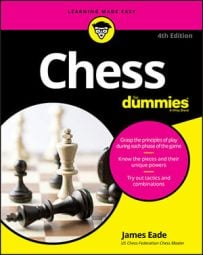- Mikhail Chigorin (1850–1908), Russia: Mikhail Chigorin played two championship matches with Wilhelm Steinitz and lost both of them, but these matches were considered to be closely contested, and the second match in particular could have gone either way. In 1893, Chigorin drew a tremendous fighting match with Siegbert Tarrasch, who also makes this list.
- Siegbert Tarrasch (1862–1934), Germany: From 1888 to 1892, Siegbert Tarrasch won five consecutive major tournaments. He never challenged Wilhelm Steinitz for the title — although he was certainly qualified to — reportedly due to his obligations as a medical doctor. When he finally got his chance against Emanuel Lasker in 1908, he was past his prime and soundly beaten.
- Harry Nelson Pillsbury (1872–1906), United States: Harry Nelson Pillsbury's first international tournament was Hastings 1895, one of the strongest and most famous tournaments in history. Unbelievably, he won the event ahead of Wilhelm Steinitz, Emanuel Lasker, Mikhail Chigorin, and Siegbert Tarrasch. No one had ever done anything like it before. His career tournament record against Lasker was four wins, four losses, and four draws — the best result among any of his contemporaries. His untimely death, due to illness, may have been the only obstacle between him and the title.
- Akiba Rubinstein (1882–1961), Poland: In 1912, Akiba Rubinstein won four major tournaments and was clearly at the top of his game. He then began negotiations with Emanuel Lasker for a title match. Sadly, he fared badly in the great tournament in St. Petersburg 1914 and lost his potential backing. Then World War I broke out; his best opportunity was gone.
- Samuel Reshevsky (1911–1992), United States: During the years 1935 to 1950, Samuel Reshevsky played in 14 major tournaments and won half of them. He finished lower than third only once. This record is all the more remarkable because he was only a part-time player and held a full-time, nonchess job. Born in Poland, he was perhaps the greatest child prodigy in chess history. He also continued to play at an extremely high level well into his 70s and once drew a match with Bobby Fischer in 1961.
- Paul Keres (1916–1975), Estonia: Paul Keres won some of the strongest tournaments in the late 1930s, but the advent of World War II dashed his title hopes. After the war, he was a candidate for the title no less than seven times but never made it to the finals. His near misses took on almost tragic proportions.
- Viktor Korchnoi (1931–2016), Russia: Viktor Korchnoi won four Soviet championships and competed as a candidate many times over the course of his career. He came within a hair's breadth of winning the title from Anatoly Karpov in 1978. Korchnoi was a defector from the Soviet Union, and all of that country's resources were used against him. Of all the players on this list, Korchnoi may have the strongest claim.
This decision had the unwanted side effect of returning chess to the bad old days where the World Champion would decide who the challenger would be. F.I.D.E.'s response was to establish an alternate pathway for identifying the next challenger. The drawback was that the system did not include the world's clear #1 player.
It wasn't until Kasparov finally lost a match to Kramnik that unification became possible. The chess world owes Kramnik a debt of thanks.
Each of the players on the list in the following table defeated anyone that F.I.D.E. put in front to them. They deserve to be both remembered and respected.
More Remarkable Players
| Player | Years | Country |
| Anatoly Karpov | 1993–1999 | Russia |
| Alexander Khalifman | 1999–2000 | Russia |
| Viswanathan Anand | 2000–2002 | India |
| Ruslan Ponomariov | 2002–2004 | Ukraine |
| Rustam Kasimdzhanov | 2004–2005 | Uzbekistan |
| Veselin Topalov | 2005–2006 | Bulgaria |

